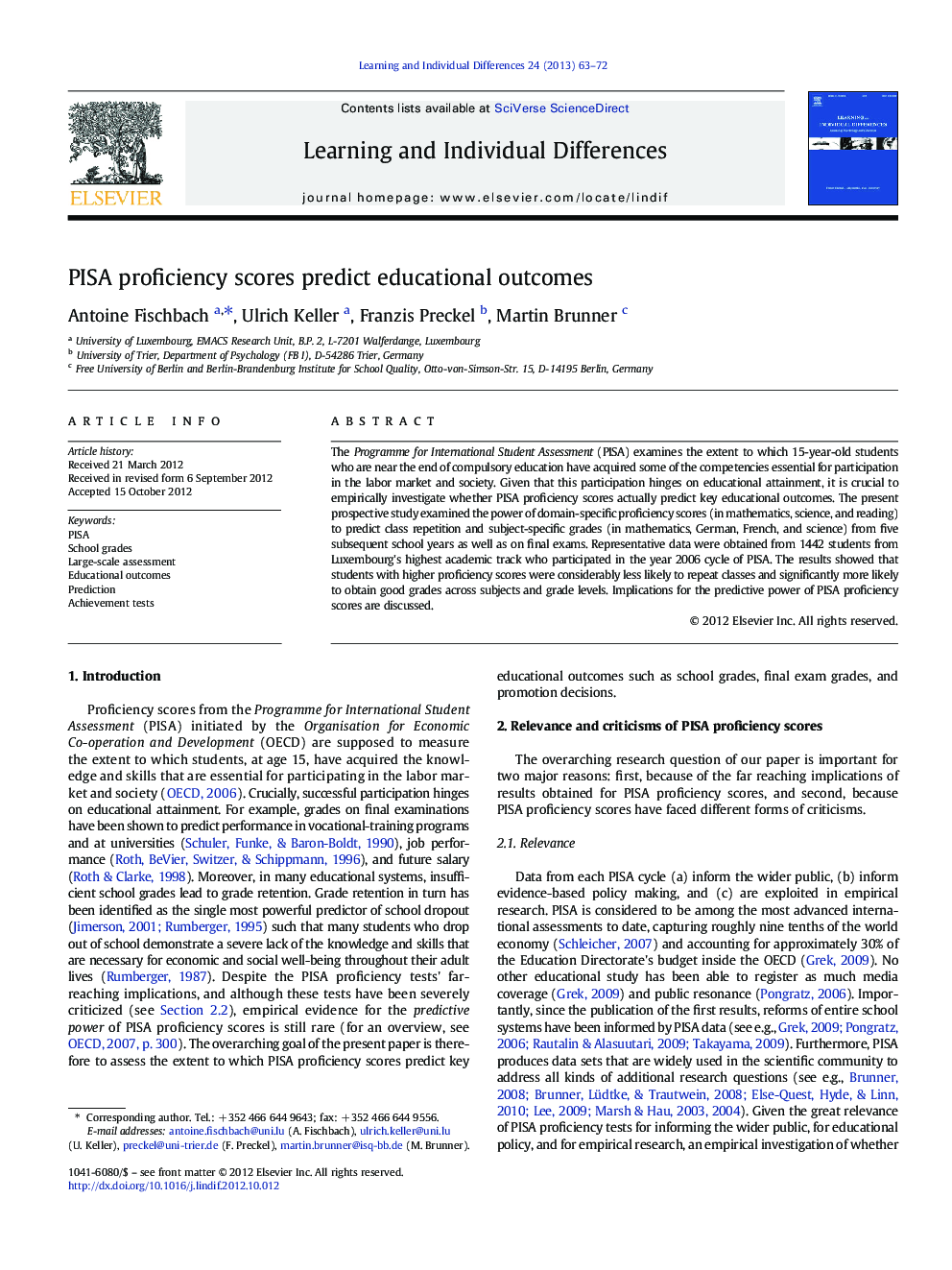| Article ID | Journal | Published Year | Pages | File Type |
|---|---|---|---|---|
| 364911 | Learning and Individual Differences | 2013 | 10 Pages |
The Programme for International Student Assessment (PISA) examines the extent to which 15-year-old students who are near the end of compulsory education have acquired some of the competencies essential for participation in the labor market and society. Given that this participation hinges on educational attainment, it is crucial to empirically investigate whether PISA proficiency scores actually predict key educational outcomes. The present prospective study examined the power of domain-specific proficiency scores (in mathematics, science, and reading) to predict class repetition and subject-specific grades (in mathematics, German, French, and science) from five subsequent school years as well as on final exams. Representative data were obtained from 1442 students from Luxembourg's highest academic track who participated in the year 2006 cycle of PISA. The results showed that students with higher proficiency scores were considerably less likely to repeat classes and significantly more likely to obtain good grades across subjects and grade levels. Implications for the predictive power of PISA proficiency scores are discussed.
► High PISA proficiency scores are associated with regular educational careers. ► PISA proficiency scores are substantively related to grades across 5 school years. ► PISA proficiency scores substantively predict grades on the final examination. ► PISA proficiency scores' predictive power remains even when controlling for SES.
